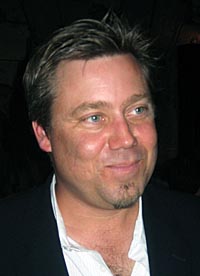Aspiring teachers come to the profession with a wealth of life experience that shapes their training, their work in the classroom, and their longevity in the occupation, says the author of the new book Teaching What They Learn, Learning What They Live.
Aspiring teachers' personal dispositions and ideas about teaching have been overlooked by many teacher educators, but they could be key to improving teacher quality and helping reduce the high rate of teacher turnover, said author Brad Olsen, an assistant professor of education at the University of California, Santa Cruz.
"Becoming a teacher isn't merely about absorbing information," said Olsen. "Everyone has a different idea about what good teaching is. Learning to teach is actually learning how to negotiate the contradictions of teaching for oneself."
Nearly half of all new teachers leave the profession within their first five years in the classroom, noted Olsen. "Clearly, something isn't working, and I think teacher educators need to consider how their students' histories shape the way they become beginning teachers," he said.
In Teaching What They Learn, Learning What They Live: How Teachers' Personal Histories Shape Their Professional Development (Boulder, CO: Paradigm Publishers, 2008), Olsen, a former high school English teacher, tells the stories of four aspiring teachers to illustrate the ways in which their teacher-credential programs did--and did not--acknowledge their personal histories. He focuses on the often hidden ways that teachers' personal histories shape their professional learning.
"We shouldn't frame teaching as a series of problems that get solved, because teaching is really a series of tensions that must be constantly negotiated," said Olsen. Among those contradictions are tensions produced by today's prescriptive educational policies, which don't leave many teachers and school districts much room for creativity or even local control, according to Olsen.
"Given the current restrictive policy climate in many schools, iconoclastic, creative freethinkers may not want to go into teaching, which is pretty scary for the health of our democracy," said Olsen. "Let's make all these contradictions more visible for beginning teachers. With greater awareness of their own identity development as educators, they'll have more clarity, power, and efficacy."
#####
Editor's Note: Brad Olsen can be reached at (831) 459-4933 or via e-mail at bolsen@ucsc.edu.



